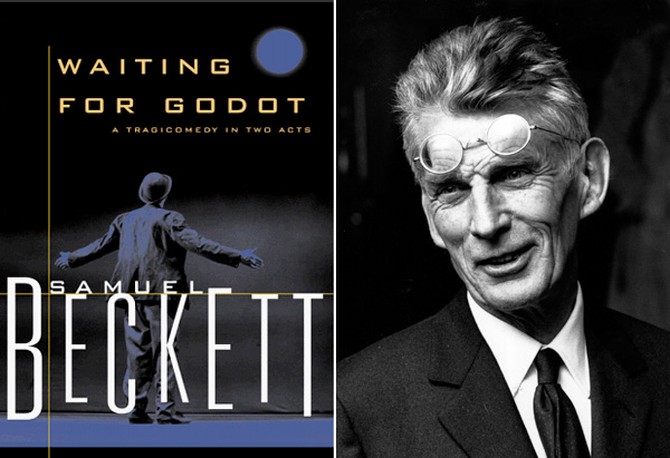10 Great Irish Writers
By Melissa Hellstern
Samuel Beckett
After earning a degree from Trinity College in Dublin, Samuel Beckett took a teaching post in Paris and became a student, assistant and close friend of James Joyce. Beckett's career began by helping Joyce research his final novel, Finnegan's Wake. Under Joyce's influence, Beckett became a Modernist/postmodernist novelist, essayist, poet and playwright who seemed well-suited to comment on the human condition.
His most famous work, the play Waiting for Godot, was Beckett's first long work to be written directly in French. One of the premier examples of the theater of the absurd movement, Waiting for Godot is a stripped down, existential, two-act tragic comedy in which nothing and everything happens and which remains very popular today.
In 1969, Beckett was awarded the Nobel Prize for Literature. His wife, knowing how intensely private her husband was, called the award, and the fame that would come with it, a "catastrophe." After dying in the same year, they were buried together in Paris under a simple granite headstone that is, per his request, "any colour, so long as it's grey."
Author John Edgar Wideman on Beckett
His most famous work, the play Waiting for Godot, was Beckett's first long work to be written directly in French. One of the premier examples of the theater of the absurd movement, Waiting for Godot is a stripped down, existential, two-act tragic comedy in which nothing and everything happens and which remains very popular today.
In 1969, Beckett was awarded the Nobel Prize for Literature. His wife, knowing how intensely private her husband was, called the award, and the fame that would come with it, a "catastrophe." After dying in the same year, they were buried together in Paris under a simple granite headstone that is, per his request, "any colour, so long as it's grey."
Author John Edgar Wideman on Beckett
Published 03/10/2010


